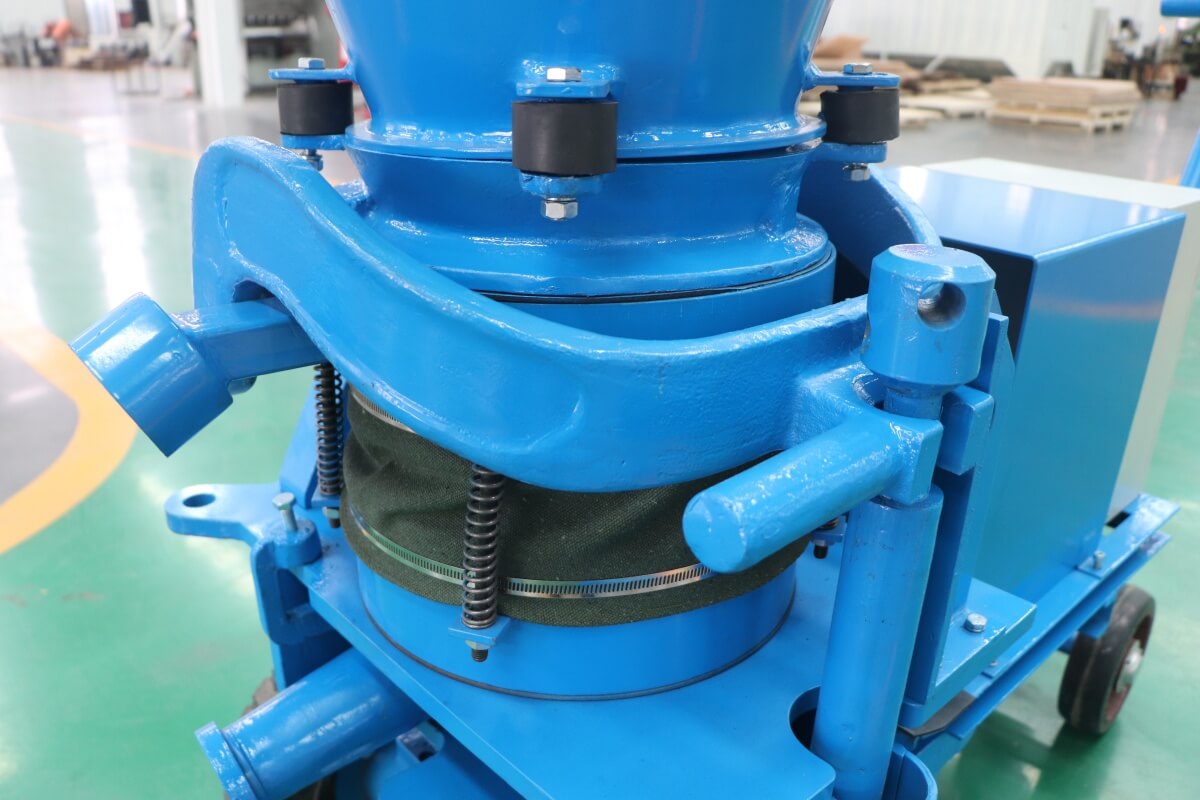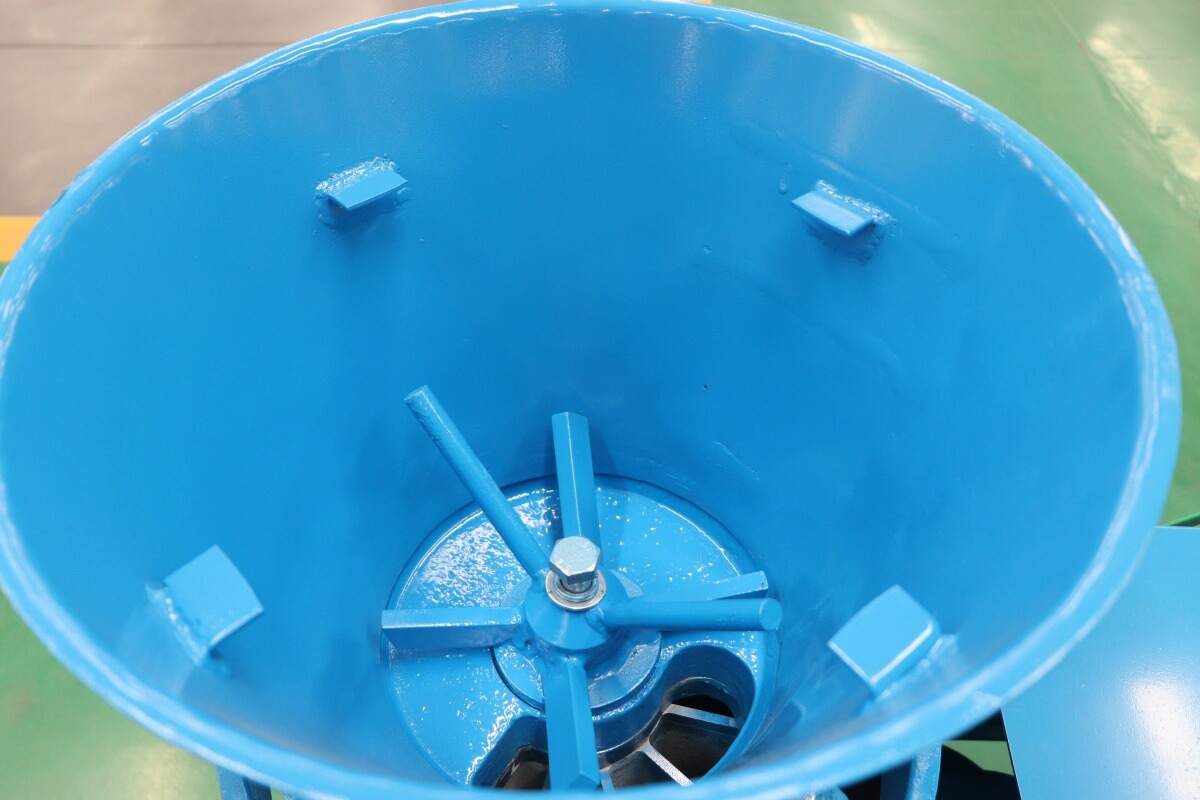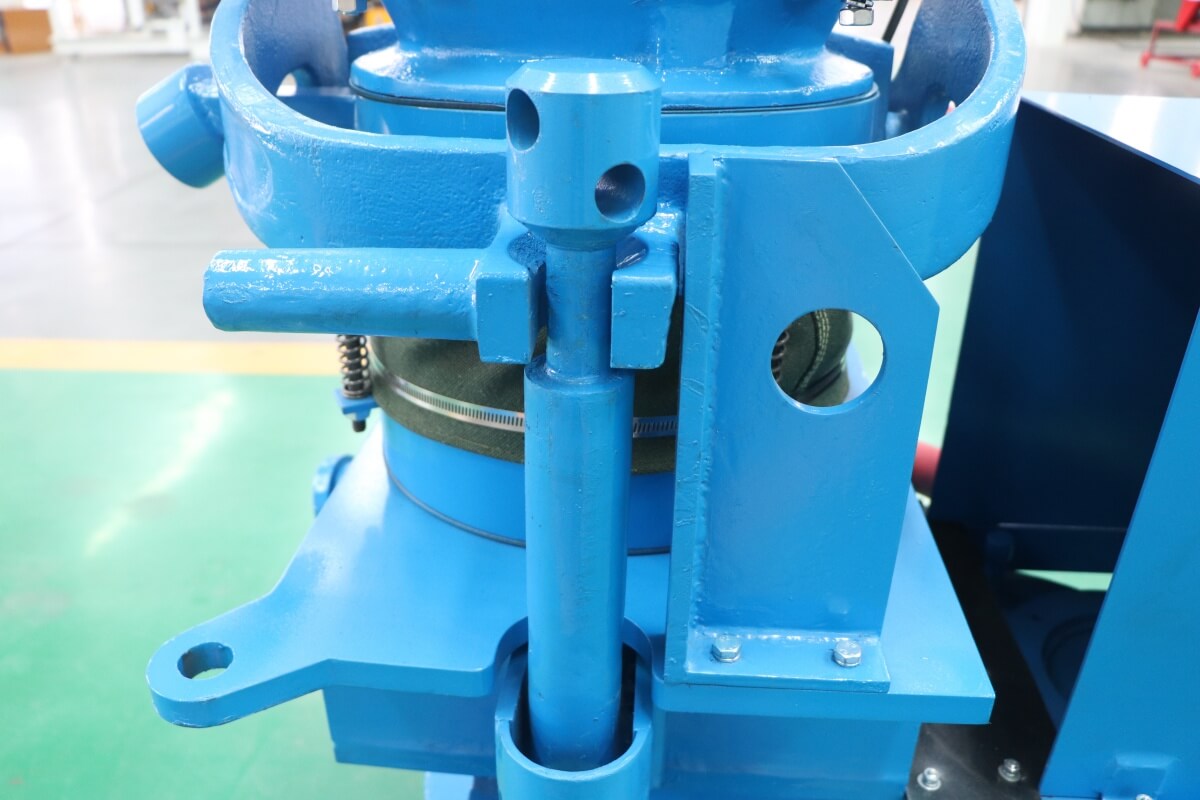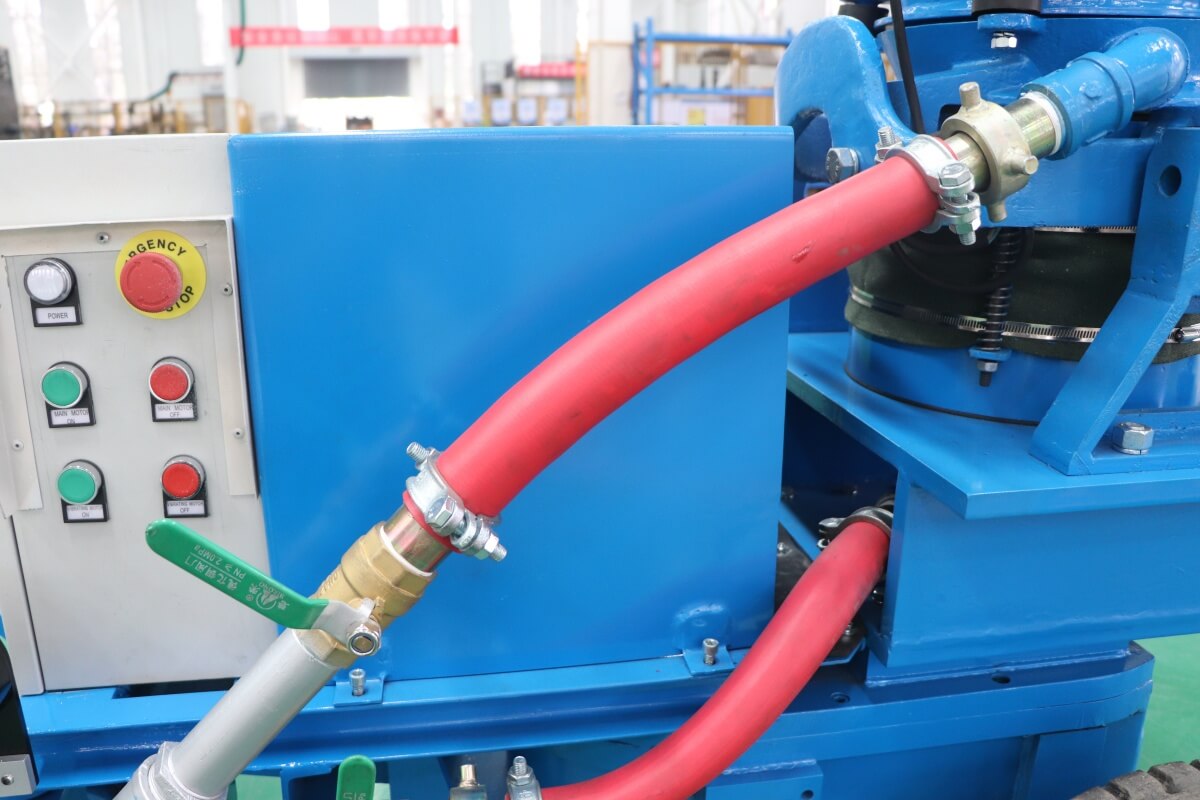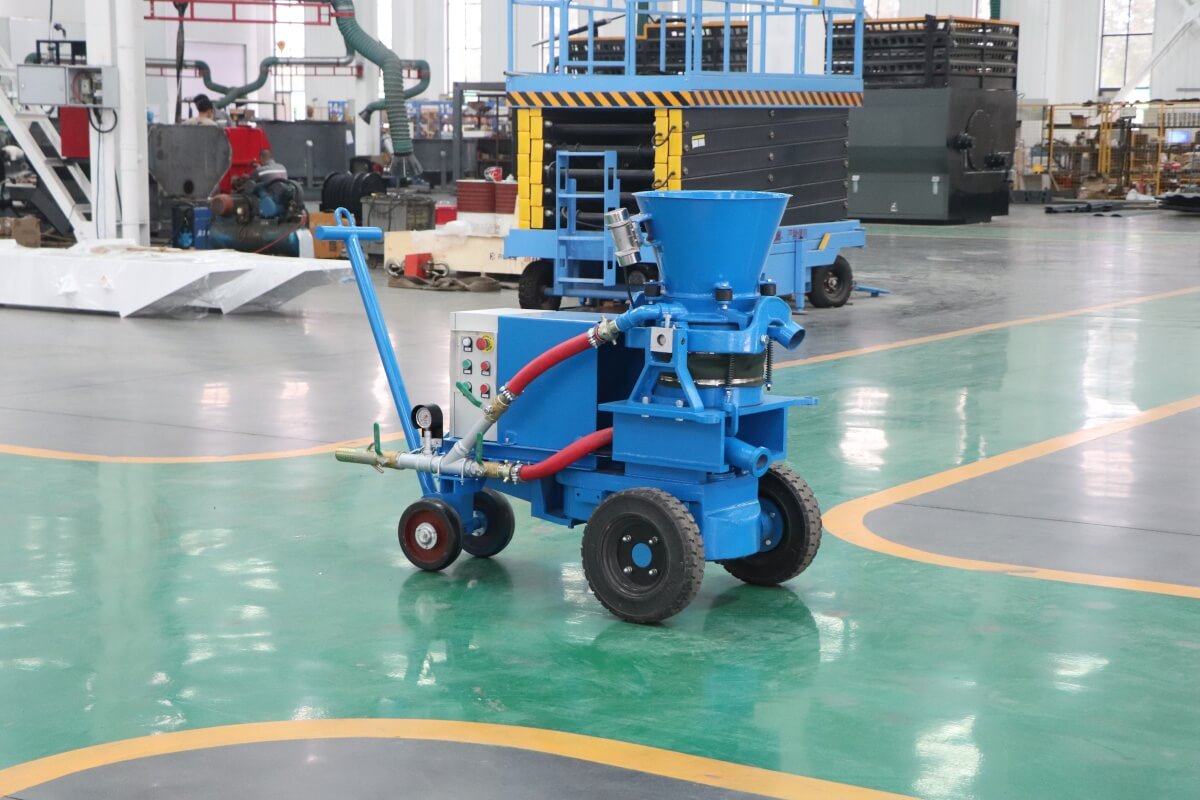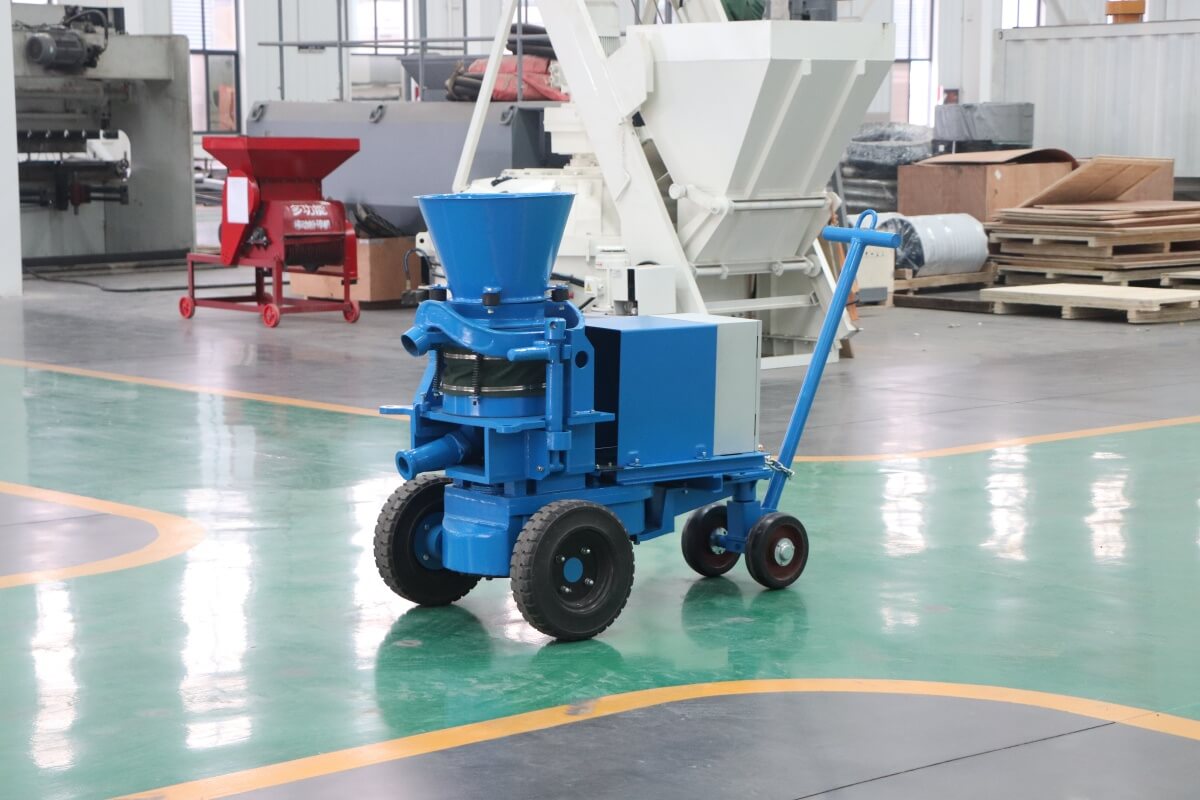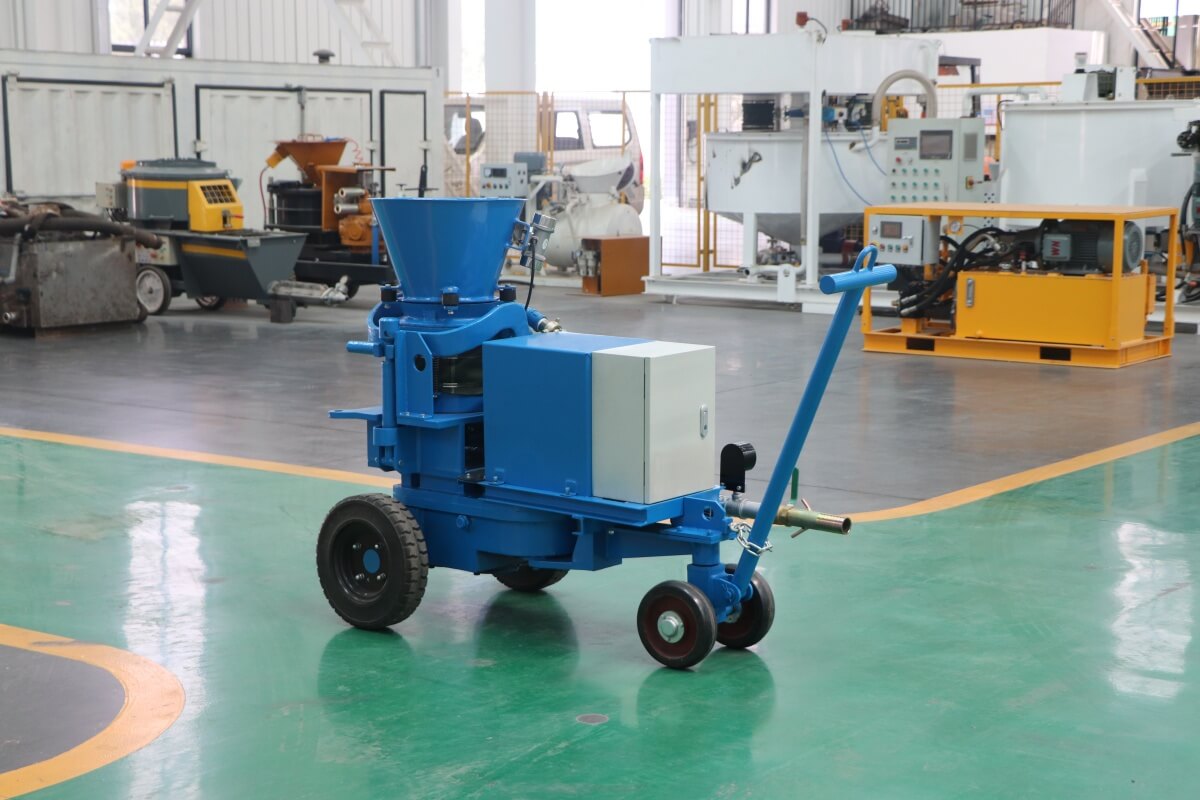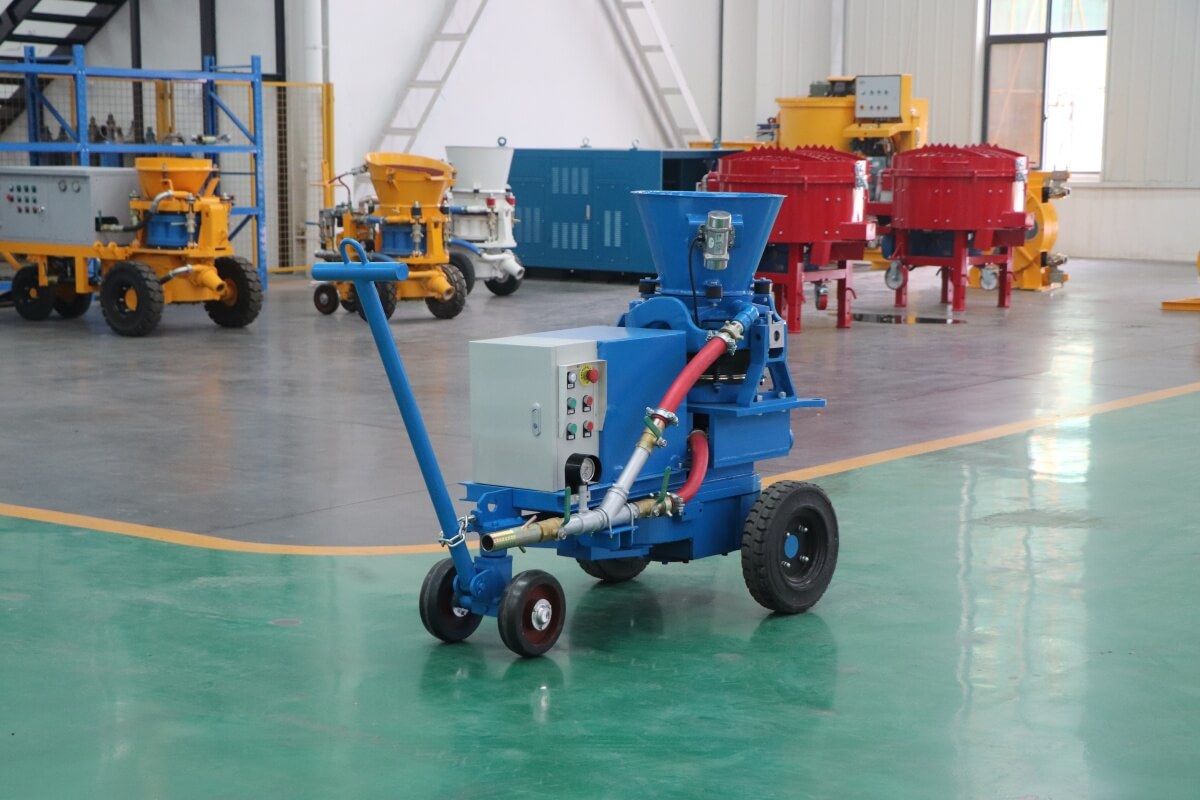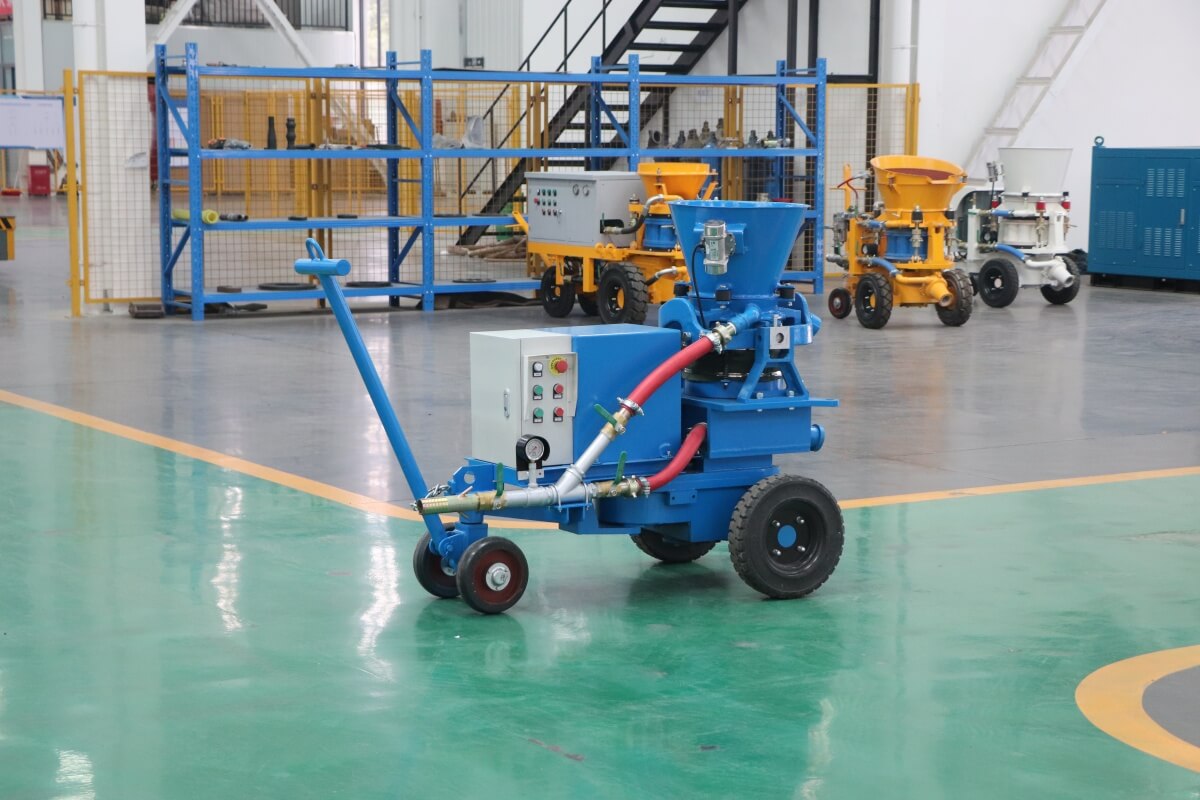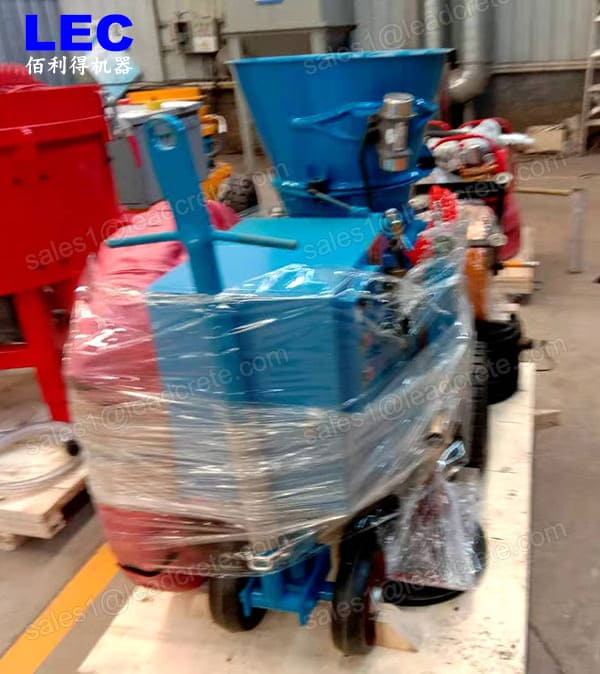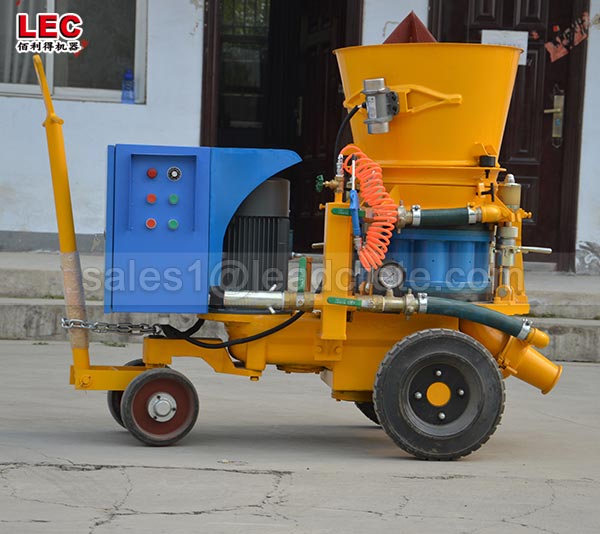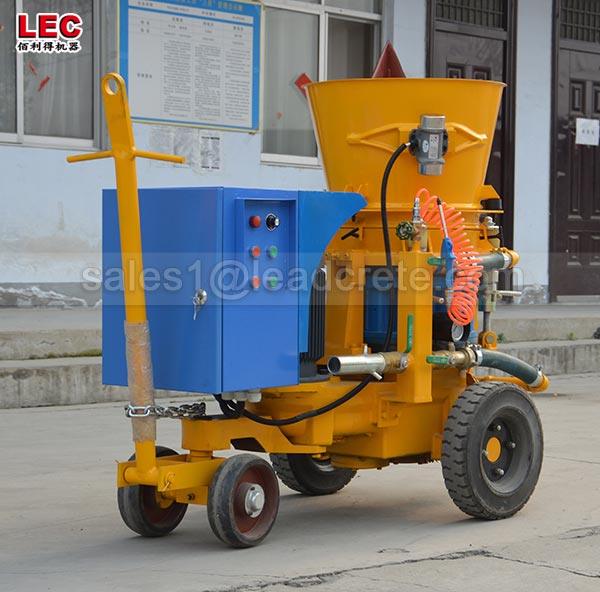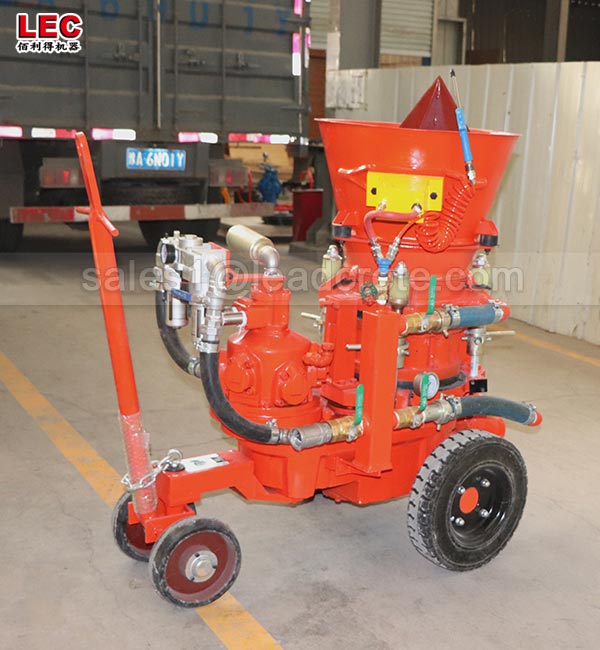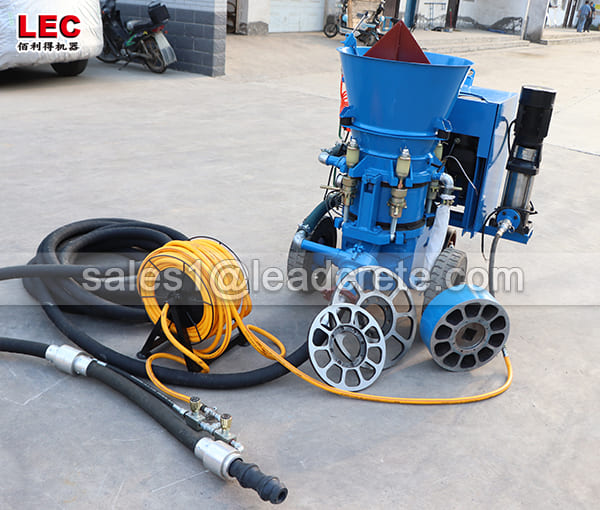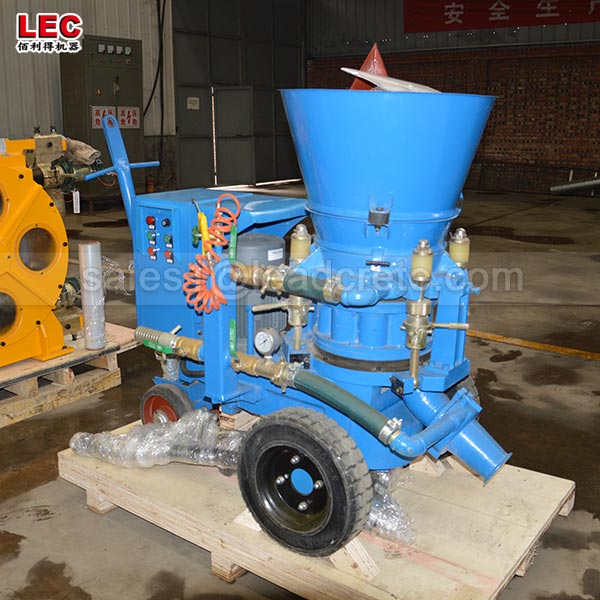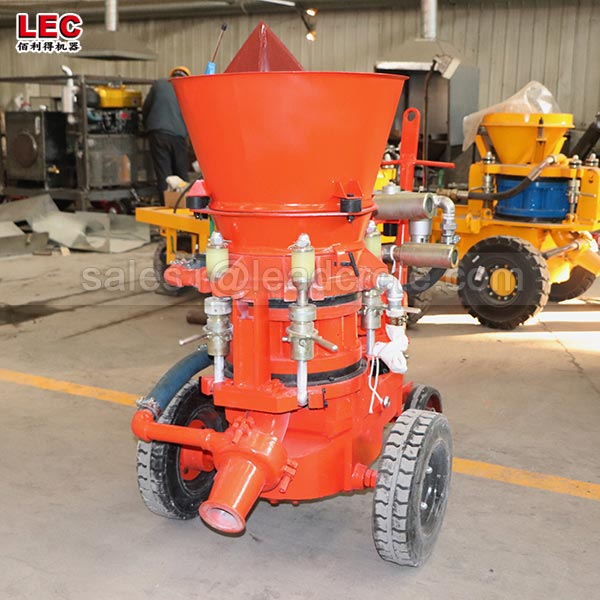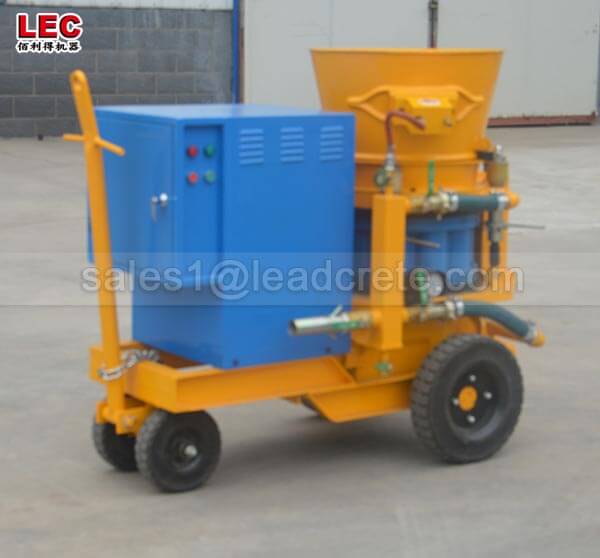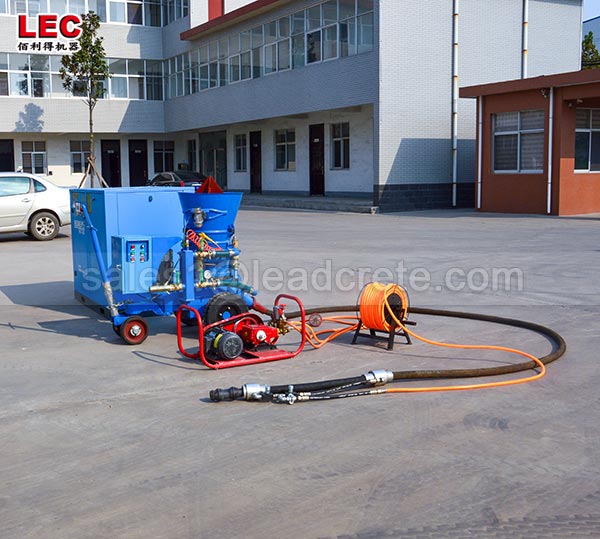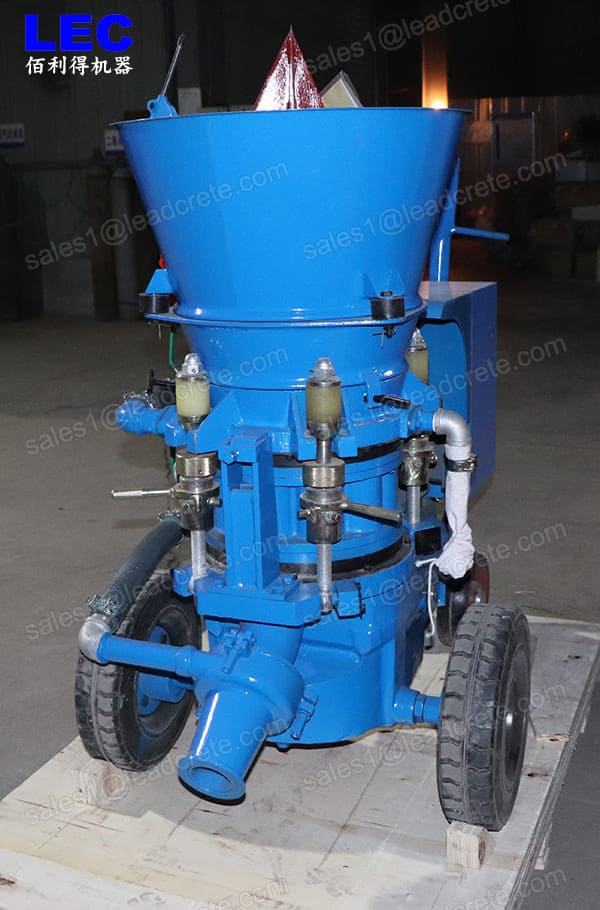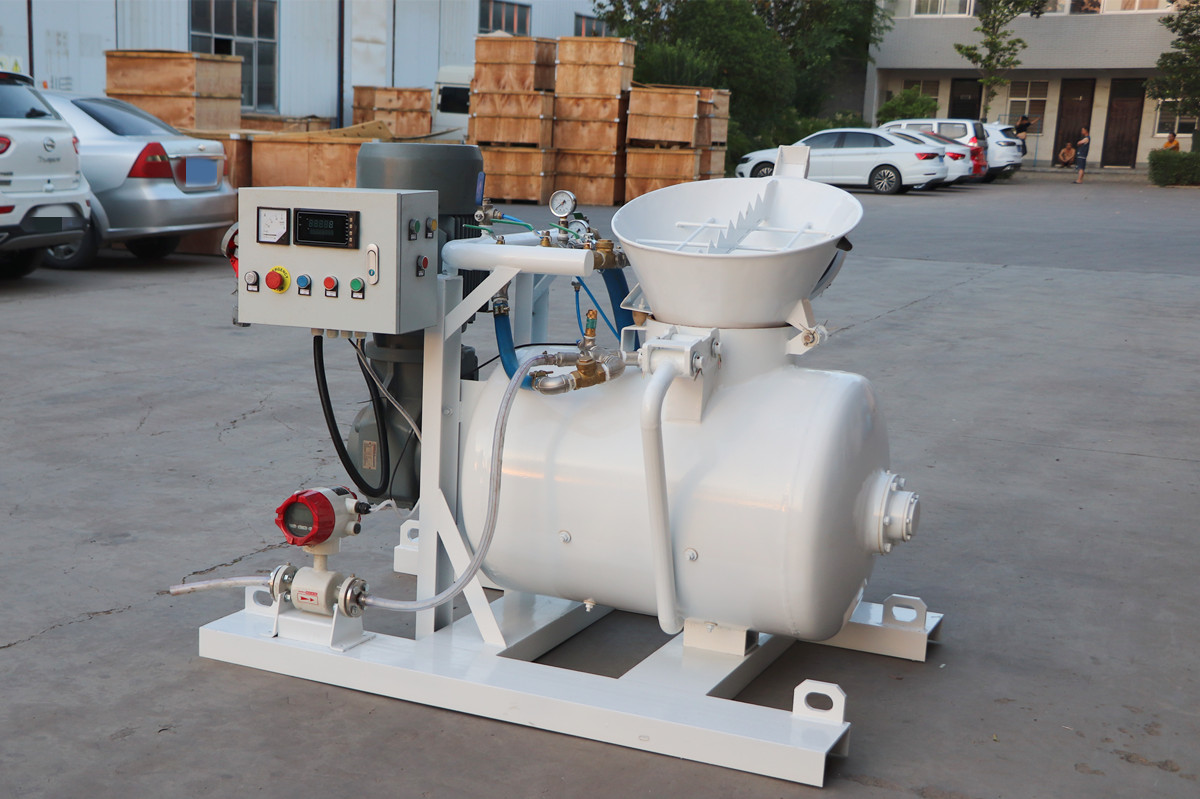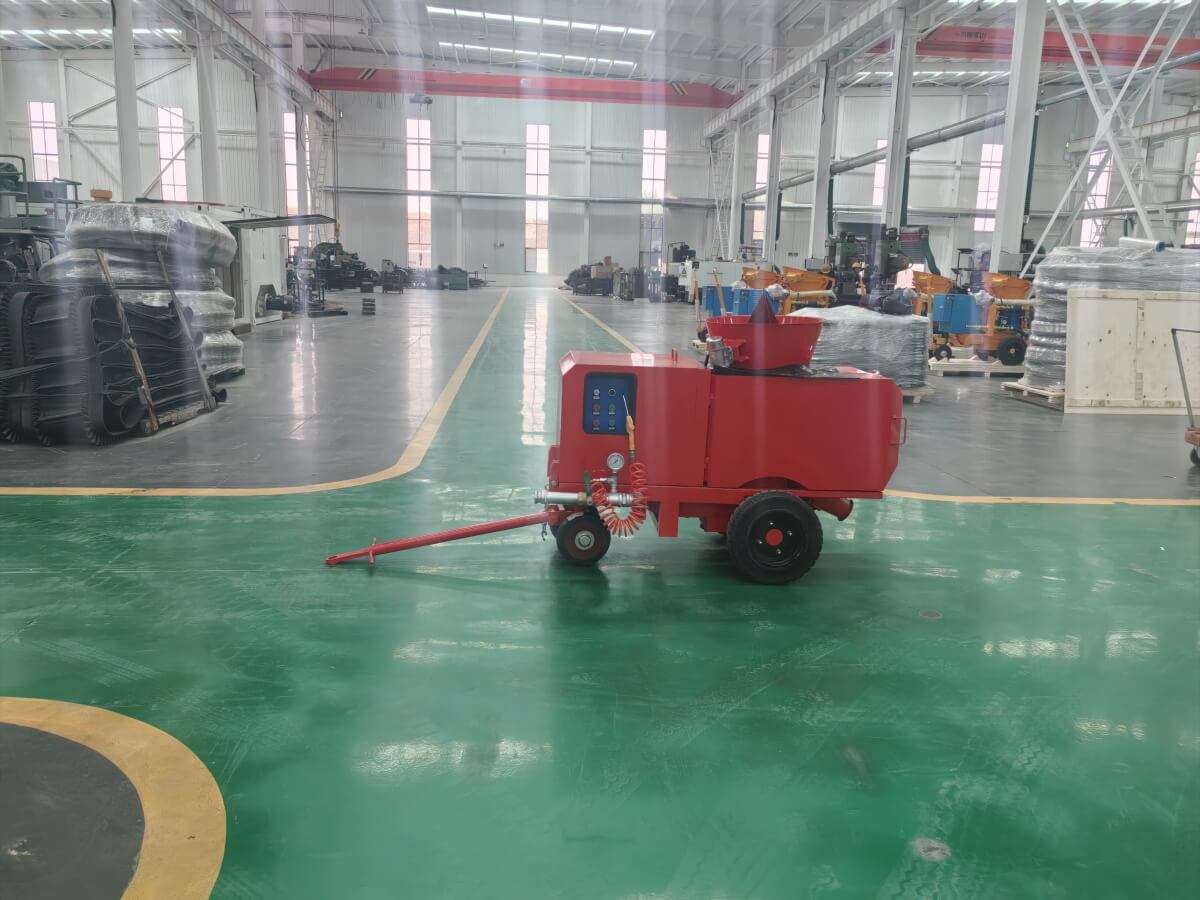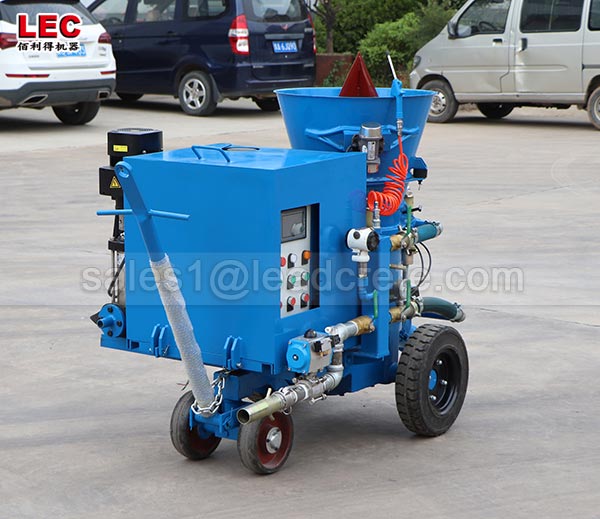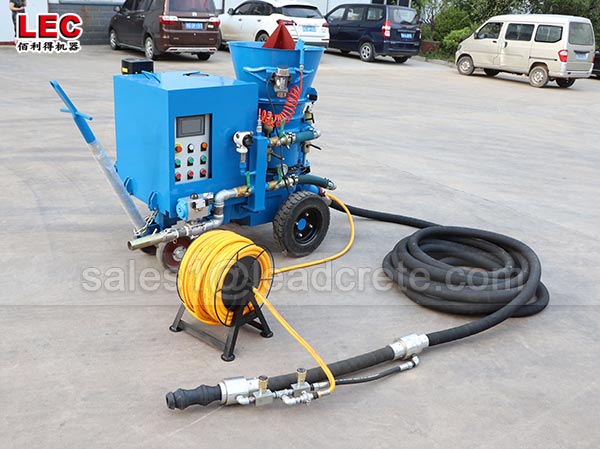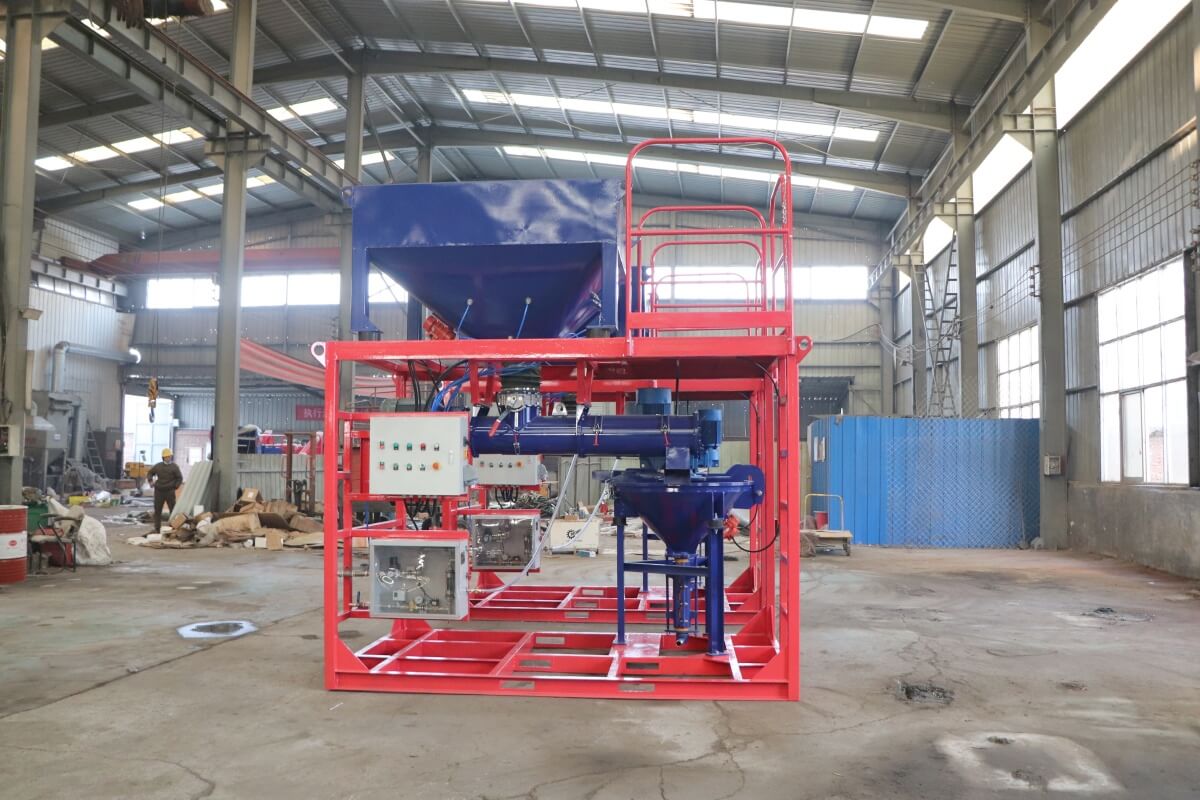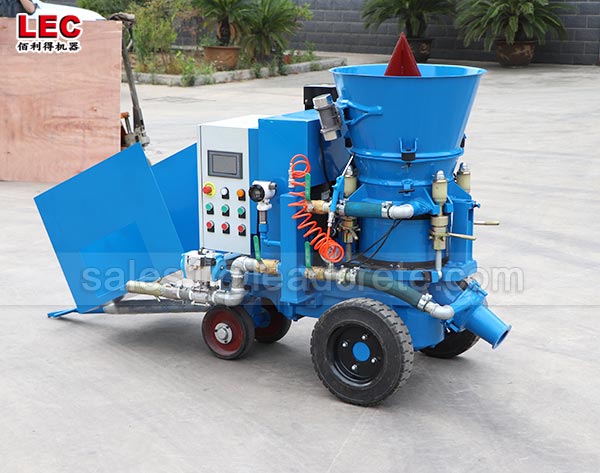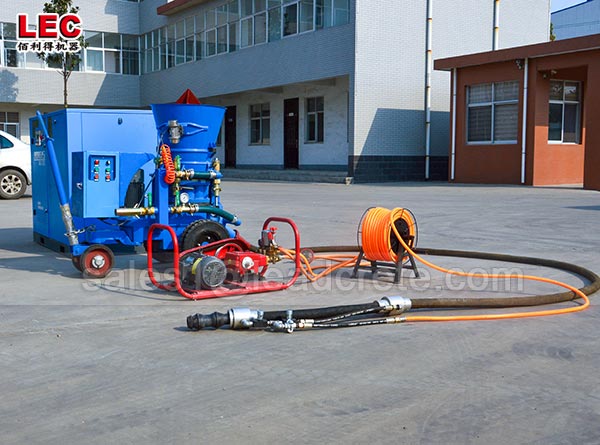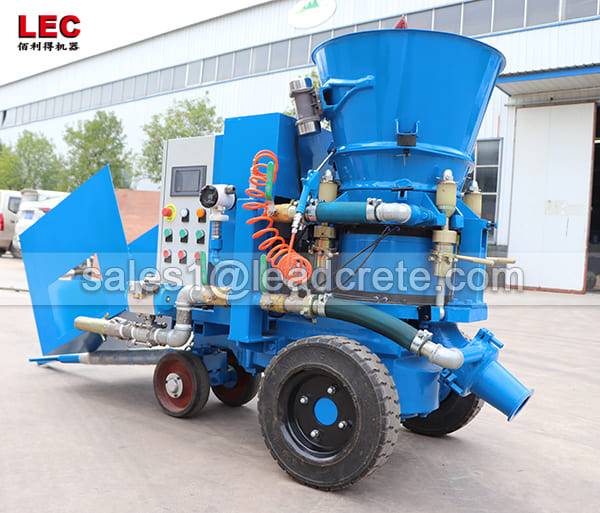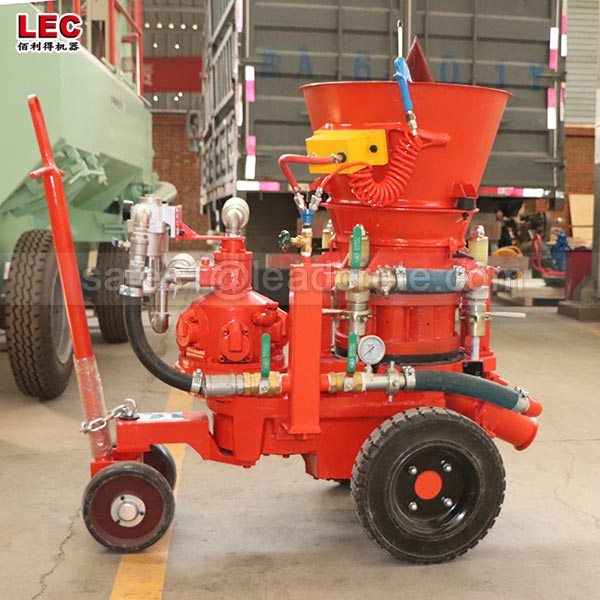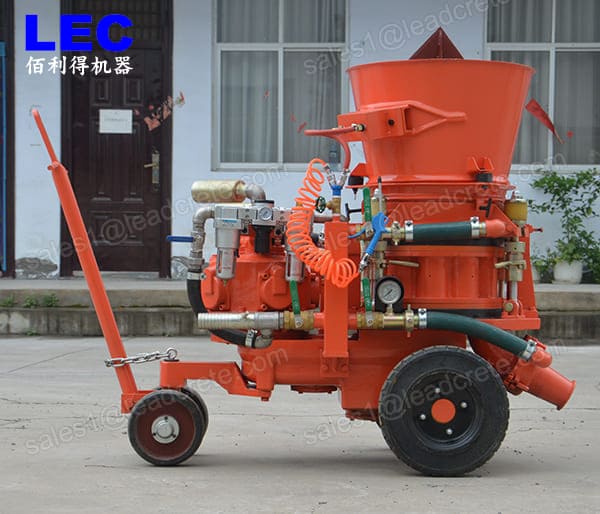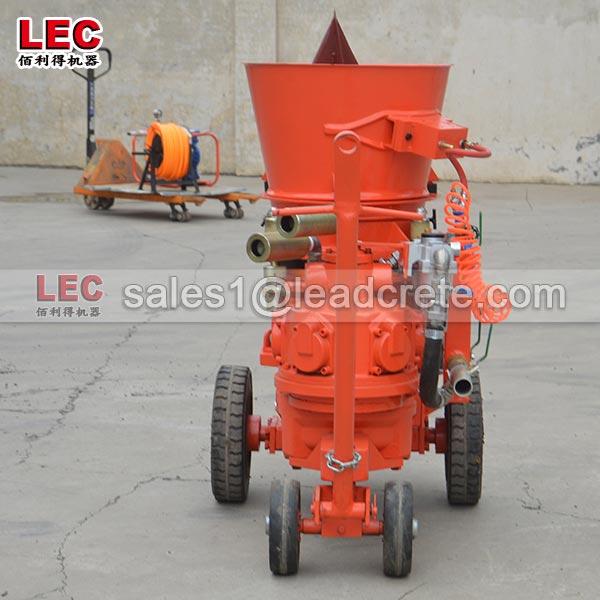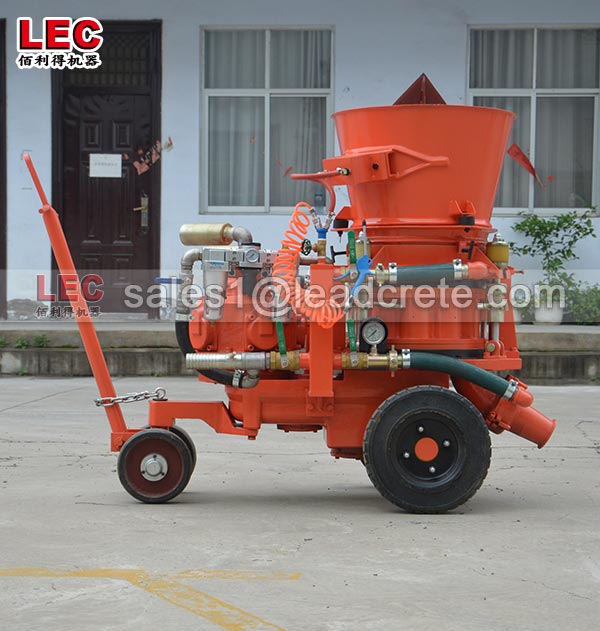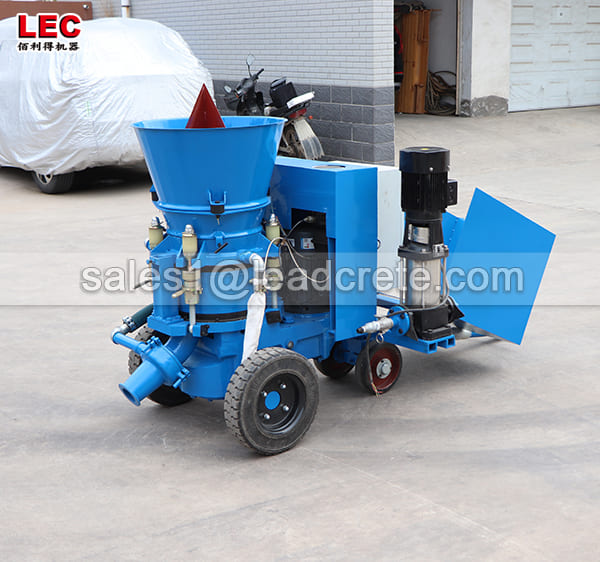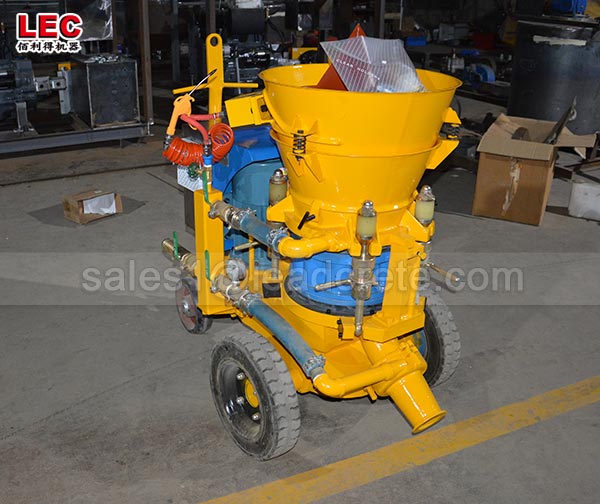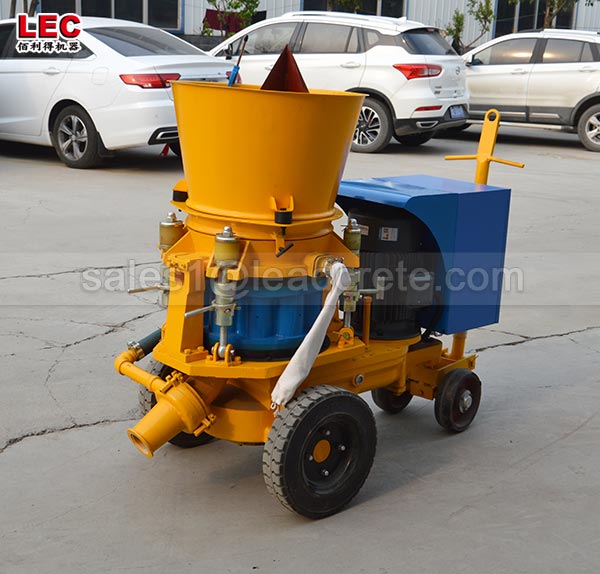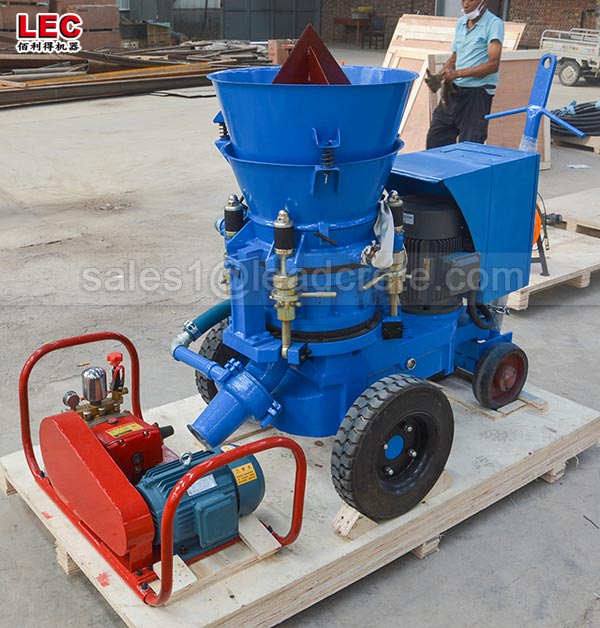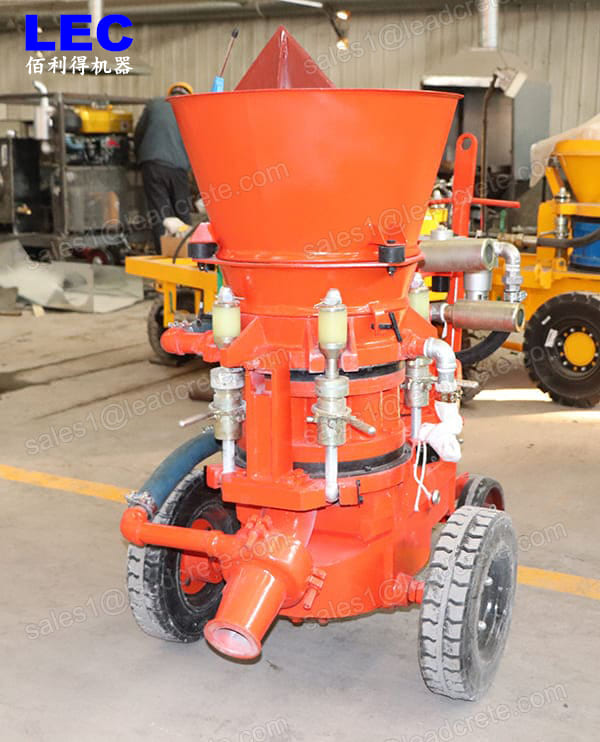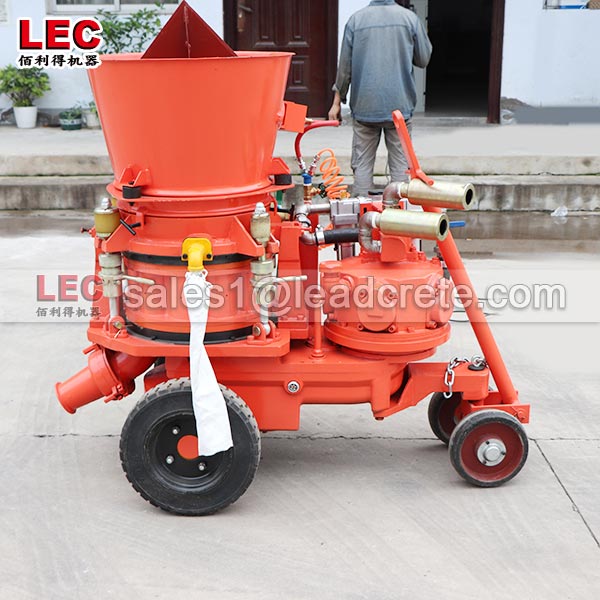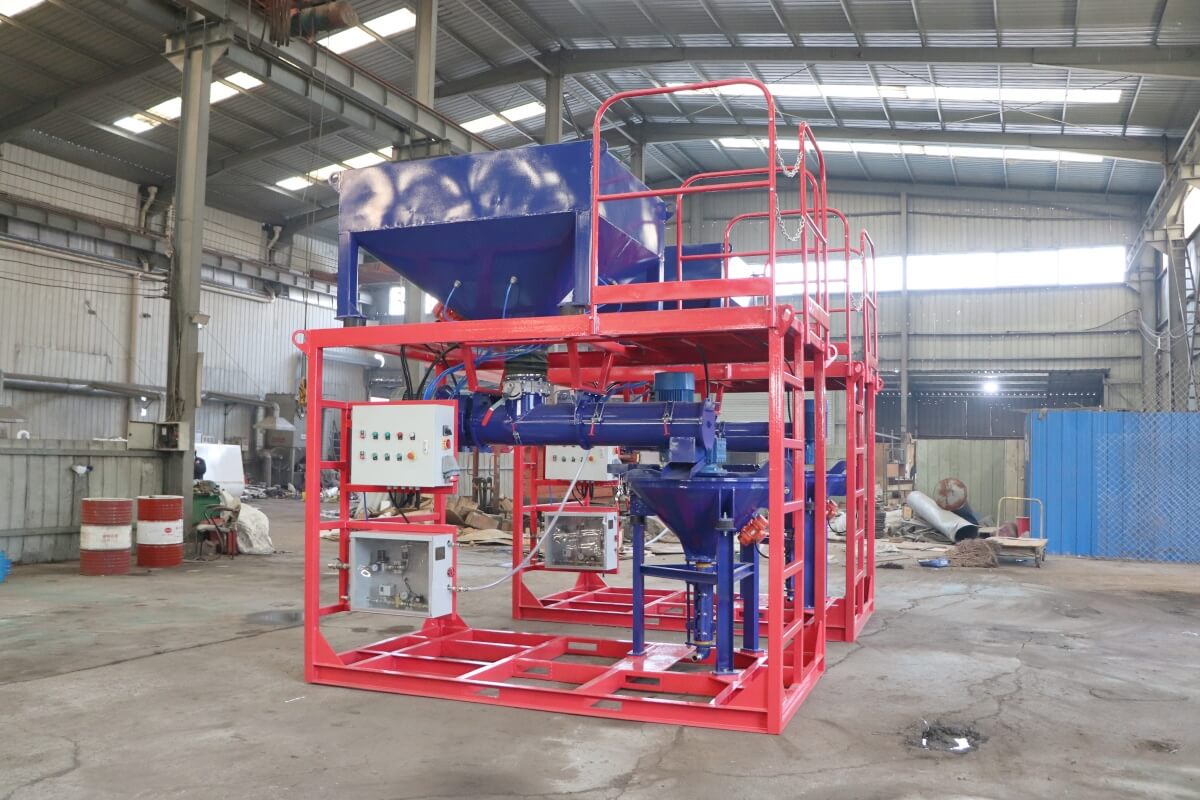Electric refractory spraying machine
Electric refractory spraying machine uses a motor-driven rotor or vibrator to convey refractory materials (such as refractory concrete and castables) from a hopper to a spray gun. Compressed air accelerates the material at the spray gun, spraying it at high speed onto the target surface, forming a dense, uniform refractory layer. Its key advantages are:
Efficient application: Spraying rates can reach several cubic meters per minute, significantly reducing application cycle time.
Precise control: By adjusting motor speed, air pressure, and nozzle angle, material flow and spray thickness can be precisely controlled.
Adaptable to complex environments: It can operate in high temperatures, confined spaces, and on vertical or inclined surfaces, meeting diverse application needs.
Electric refractory spraying machine technical characteristics:
Power Source:
Driven by an electric motor (typically 5–15 HP), offering cleaner, quieter operation compared to diesel alternatives.
Suitable for indoor/enclosed environments (e.g., factories, workshops).
Core Functionality:
Mixes refractory aggregates, binders, and water into a homogeneous slurry.
Pumps the mixture through a nozzle at high pressure (30–50 bar) for adhesion to target surfaces.
Handles abrasive, dense materials with wear-resistant components (e.g., tungsten carbide rotors/stators).
Key Components:
Electric Motor: Powers hydraulic or direct-drive systems.
Rotor/Stator Pump: Ensures consistent material flow.
Mixing Chamber: Blends dry and wet components evenly.
Adjustable Nozzle: Controls spray pattern, thickness, and pressure.
Advantages:
Environmental Compliance: Zero emissions, ideal for air-quality-sensitive sites.
Lower Operating Costs: Reduced fuel and maintenance expenses vs. diesel.
Precision Control: Smooth power delivery for uniform spray quality.
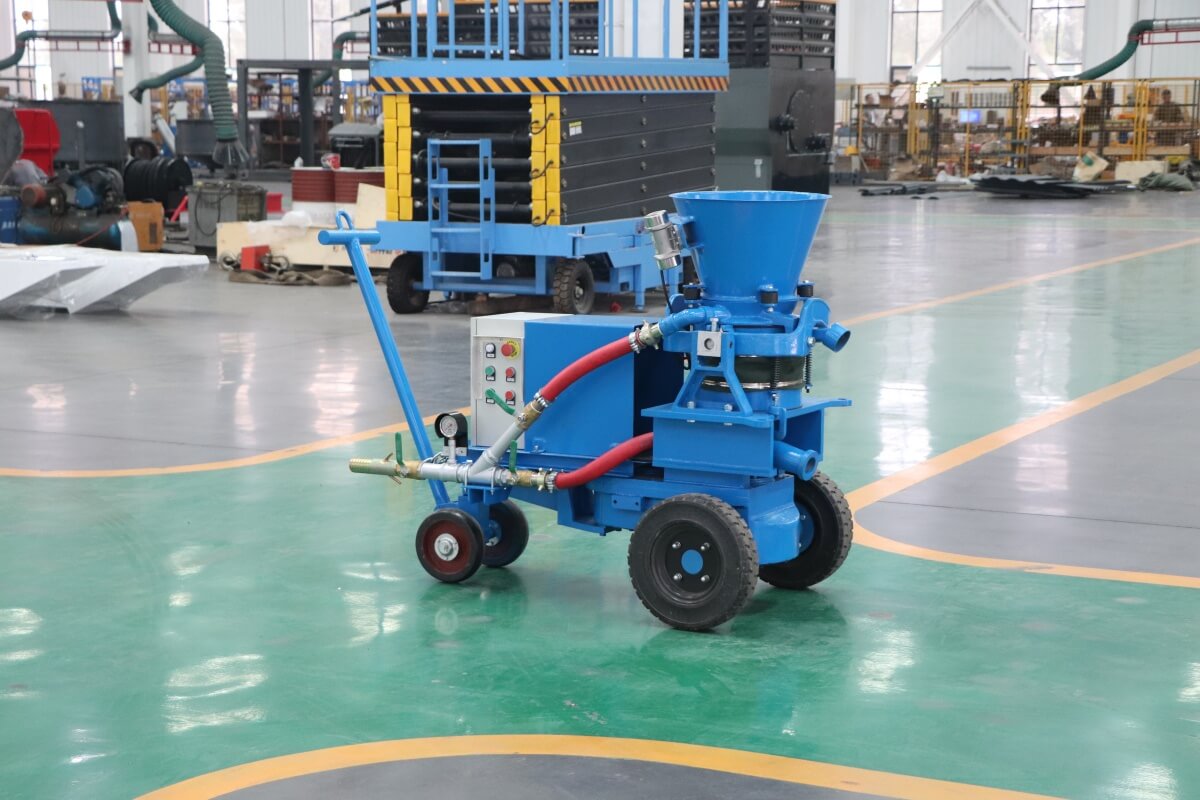
Applications of electric refractory spraying machine:
Industrial Refractory Installation:
Furnace and kiln linings (steel, cement, glass industries).
Boiler insulation in power plants.
Repair of incinerator walls.
Specialized Projects:
Petrochemical plant maintenance.
Foundry crucible coatings.
Nuclear facility shielding layers.
